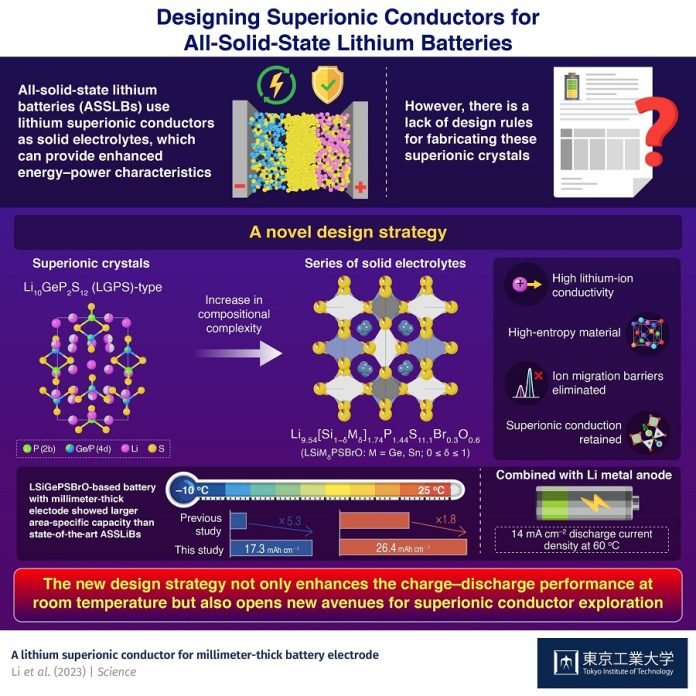
Imagine if your phone battery could last days, not hours, or your electric car could travel further without needing a recharge.
This dream might soon become a reality thanks to a group of clever scientists from Tokyo Tech in Japan. They have discovered a cool new way to make batteries more efficient and safer!
First, a bit about batteries. We usually use lithium-ion batteries for most electronic devices, from phones to electric vehicles.
Nowadays, scientists are trying to improve these batteries by making them smaller, yet more powerful.
This is super important as we rely more and more on renewable energy and electric devices.
The researchers at Tokyo Tech focused on something called “all-solid-state lithium batteries” (ASSLBs for short).
These batteries are unique because they use solid materials instead of liquids to transport electricity.
The advantage of this is that it makes the batteries safer – no leaks or fire hazards! Plus, they can hold more power and deliver it faster than traditional batteries.
However, there’s a problem. The solid materials in these batteries are stiffer, which means they don’t interact well with the battery’s cathode (the part of the battery where electricity flows out). This can cause the battery to lose power.
The problem becomes bigger when you have thicker cathodes, which are typically cheaper and can hold more energy.
The good news is, the Tokyo Tech team has found a way to fix this. They developed a new strategy for making the solid materials used in the batteries.
They used a method called “multi-substitution” to create a type of crystal that allows lithium ions (the stuff that carries electricity in the battery) to move more freely.
In their lab tests, these new batteries performed really well! They made batteries with 1- or 0.8-millimeter-thick cathodes and these batteries could hold 1.8 and 5.3 times more charge than the current best-performing batteries, respectively.
This discovery is like finding a new secret recipe for making high-performance solid batteries. It’s a huge step forward in our quest for longer-lasting and safer batteries.
Professor Kanno, the leader of the team, believes this research will lead to the development of even better batteries in the future, even at room temperature. So, we might soon be able to charge our devices less and use them more!
The study was published in Science.
Follow us on Twitter for more articles about this topic.



